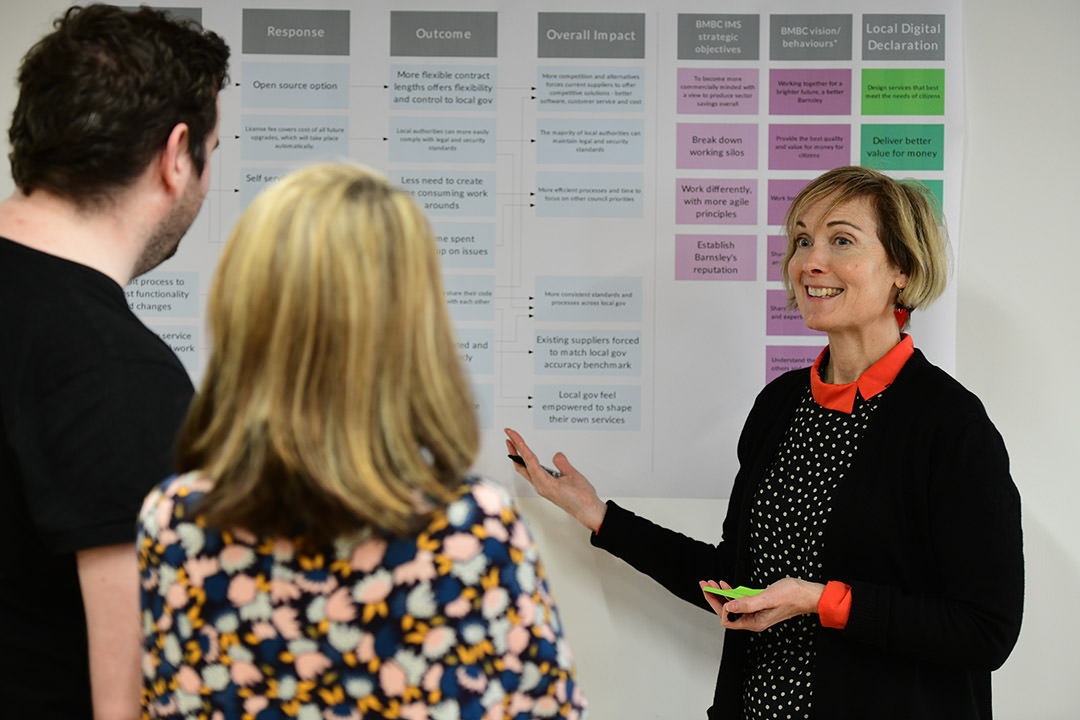Does IT get in the way of providing proper social services?

Child protection enquiries have increased 139% in 10 years
We know social services are facing an ever growing demand. To make the lives of the most vulnerable in society better, we need to do more.
We’re living longer lives which places more complex demands on the health and care system. That means the problem of funding adult social care continues. Even if the discussion was conspicuous by its absence during the election.
In children’s services, the growing demand is even more acute. Child protection enquiries have increased 139% in 10 years. The number of looked after children reached a new high in 2017/18, the biggest annual rise of children in care in eight years.
And funding is increasingly stretched. Last year, councils across England were forced to spend £770 million more on children’s social care than they had budgeted for. Making some different choices in social care IT would really help.
We want to get a group of interested local authorities, and other parties, to come together, to explore how we can better equip local authorities to do the difficult jobs that are asked of them. That means supporting some of the most vulnerable people in our communities.
Imagine IT helping to change lives not just ticking statutory boxes
The wider system demands that councils with social services responsibilities record and report vast amounts of information. IT systems in local government have, unsurprisingly, grown to accommodate all that’s required of them by government departments and agencies.
However, these systems are frequently clunky, expensive to adapt, and designed from the perspective of ticking statutory boxes. They’re easy to buy and difficult to get rid of.
Imagine if government technology did more than just tick the statutory boxes. Imagine it was intuitive and it actually worked for the benefit of its users. Whether that’s the service users themselves, their parents or carers, the stretched providers of vital services, or time-poor council staff keeping things afloat and feeding the beast.
Users deserve better and expect better. We could, should, and must do more.
We need a radical rethink to meet user needs
Councils need to be able to take whatever opportunities they can to truly understand what their users need. To step outside of their day-to-day ‘meet those statutory obligations in the simplest way possible’ churn.
By taking a little bit of time to learn more about what users need, and how to meet those needs, we think social services can be radically transformed.
That might mean the redesign of existing processes, a radical rethink of priorities, a challenge to assumed obligations, or a new product or service that meets the highest priority needs of maybe just a subset of users.
We’ve seen that it’s possible to develop solutions that genuinely meet the needs of their users by involving users in the design of new solutions and by using contemporary approaches to development.
Joe Badman from Basis, an organisation that specialises in helping front-line teams to improve their services to citizens, said:
Much of our work is focussed on helping teams working in social care to understand the complex challenges they face, to come up with solutions to those challenges, and to make those solutions happen. When given the freedom to do so, our experience of working with these teams is they can self-organise to solve even the complex societal problems. This tends to be despite the systems they use and not because of them.
Bringing local authorities and others together to help improve services
There have been some commendable examples of innovative, user-centred, design-led thinking in social care IT. But for local authorities, doing this on their own is hard. The size of the task, and the costs associated with delivering something that truly disrupts the market, present a real barrier to individual councils.
And the problem is certainly not limited to social care. We’re delighted that people are trying to come together in other areas, like this recent opportunity for building a revenue and benefits system.
Fortunately, at dxw, we’ve been working with the Ministry of Housing, Communities, and Local Government (MHCLG) looking at how local authorities can collaborate better. From that work, we know local authorities are crying out for change. We’re experts in collaboration and innovative service design and delivery, with a passion for social care. And we want to help.
We’ll host a gathering to start a discussion about how we can work together to get something done, and make a tangible change for the better, in the coming weeks.
Please get in touch if you’re interested: hello@dxw.com or comms@basis.co.uk.
Come and join us and let’s see if we can try something different. Something so much better.
Featured image from WorldSkills UK using Creative Commons License 2.0